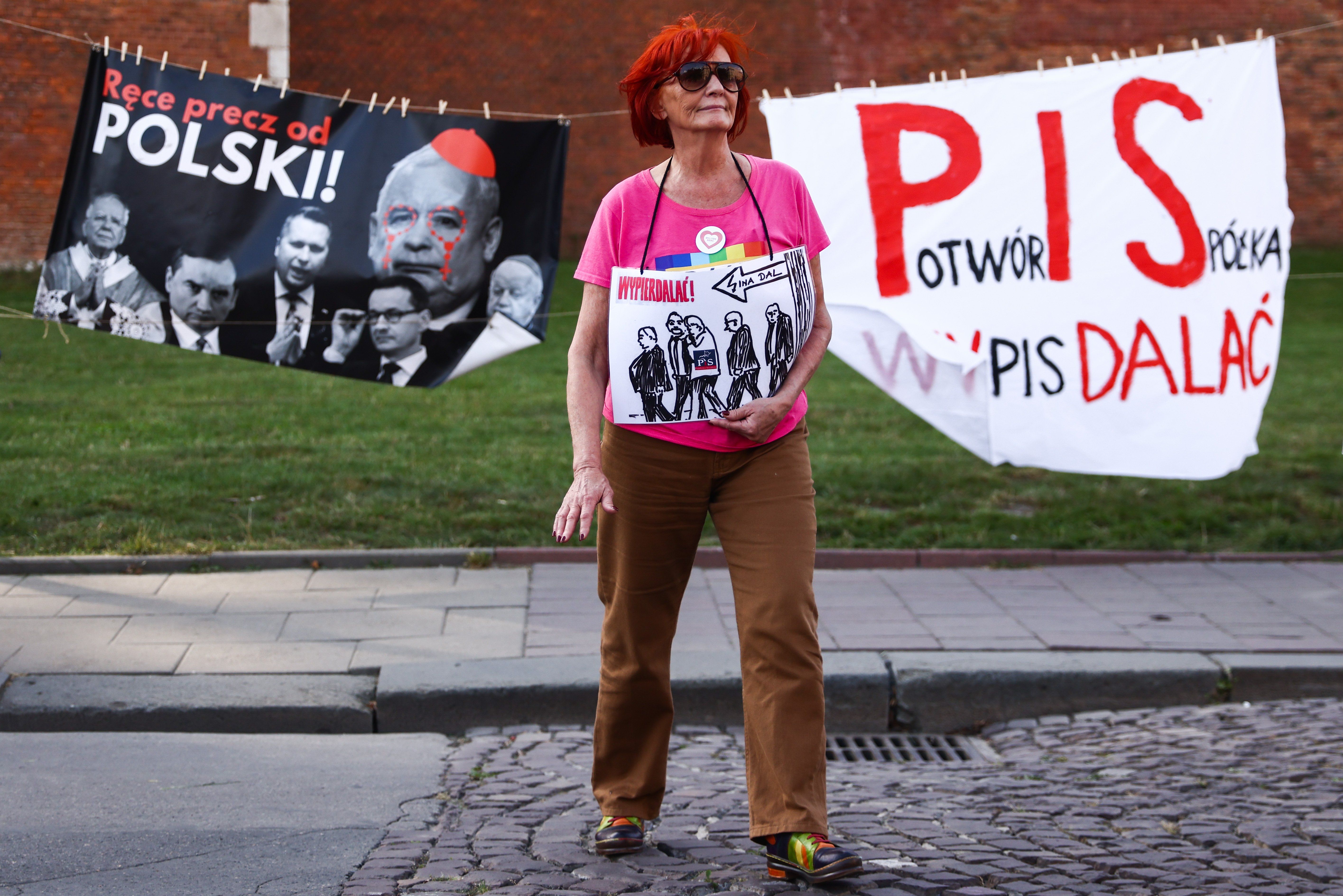A month out from Poland’s parliamentary elections, the governing Law and Justice Party (PiS) is facing a PR nightmare of their own making: the party may be anti-immigration, but it seems they aren’t anti-cash.
There is mounting evidence that several thousand visas were given to migrants from Africa and Asia in exchange for cash– a major scandal for an anti-immigration party.
The scandal was uncovered after other EU states noticed an influx of migrants entering the Schengen area with Polish visas. Seven people have been detained and the deputy foreign minister has been sacked.
PiS is looking to win its third straight general election next month, running on a platform that highlights the party’s success in stemming immigration from Muslim-majority countries and managing ongoing tensions along the Belarusian border.
But PiS is neck and neck with the liberal opposition– former Polish Prime Minister Donald Tusk’s Civic Coalition (KO) – and facing a right flank challenge from the libertarian-nationalist Confederation Party. Right now it’s anyone's game, and could result in no government being formed, prompting a repeat election in early 2024.
With swing voters likely to determine the outcome of a tight election, getting caught hawking visas while running on an anti-immigrant platform could blow up for the PiS when Poles hit the polls next month.
More For You
Most Popular
With the US leading production and China driving new reactor development, Bank of America breaks down the who, what, where, when, and why behind nuclear’s return. Stay ahead of global energy trends with Bank of America Institute.
Chris, an Army veteran, started his Walmart journey over 25 years ago as an hourly associate. Today, he manages a Distribution Center and serves as a mentor, helping others navigate their own paths to success. At Walmart, associates have the opportunity to take advantage of the pathways, perks, and pay that come with the job — with or without a college degree. In fact, more than 75% of Walmart management started as hourly associates. Learn more about how over 130,000 associates were promoted into roles of greater responsibility and higher pay in FY25.
Last week, at the Munich Security Conference, a group of global technology providers, including Microsoft, announced the Trusted Tech Alliance — committed to shared, verifiable principles for trusted, transparent, and resilient technology across borders. At a moment of economic volatility and zero-sum technological competition, countries and customers are demanding greater accountability from technology providers. The Alliance addresses this by bringing together companies from across Africa, Asia, Europe, and North America around shared commitments: transparent governance, secure development practices, supply chain oversight, open digital ecosystem, and respect for the rule of law — ensuring the benefits of emerging technologies strengthen public trust while driving job creation and economic growth. Explore the Trusted Tech Alliance here.
